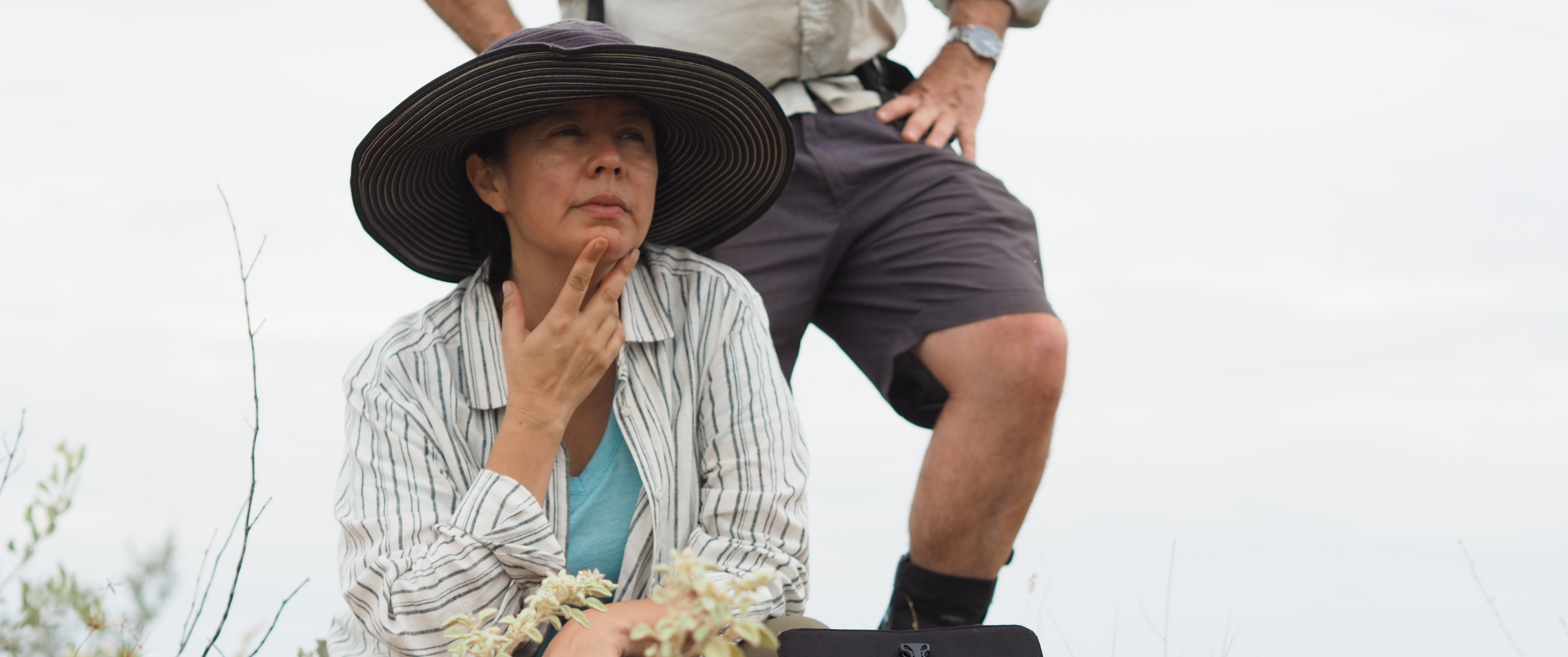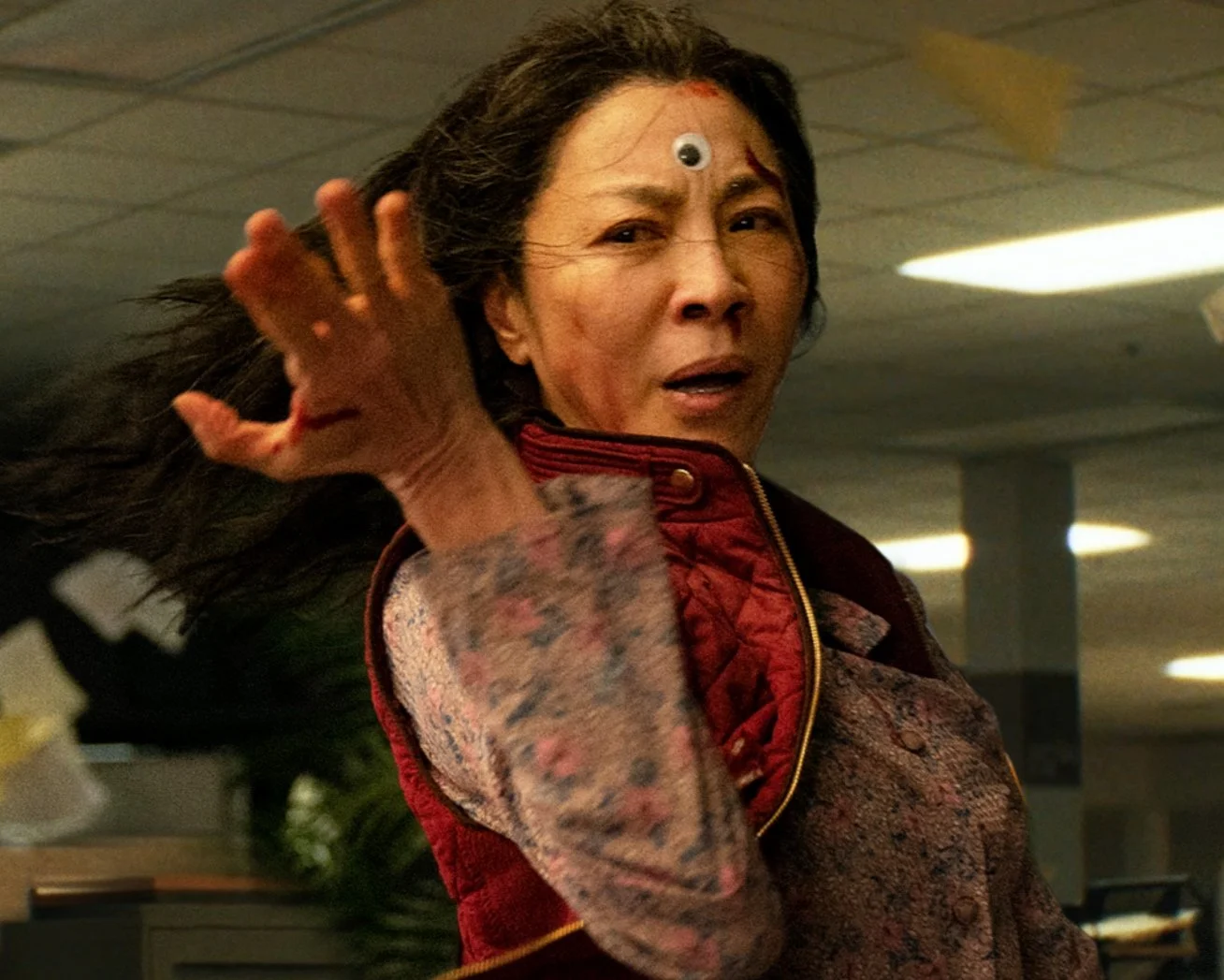The element of surprise: New Australian documentary rebrands carbon
We’ve all heard of carbon, but do we really know who carbon is? Carbon: The Unauthorised Biography is an unorthodox science documentary that transforms the way we think about the most discussed, but least understood, element on earth.
Writer and co-director Daniella Ortega joins Popcorn Podcast for a stimulating chat about why carbon is so misunderstood and shares the thinking behind her unique way of re-introducing audiences to who she really is – that’s right, carbon is a she.
The feature documentary (co-directed by Ortega’s long-time friend Niobe Thompson) is partly inspired by Primo Levi’s 1975 collection of short stories, The Periodic Table, but for the most part, it was Ortega’s family who planted the idea in her mind. “When you’re pregnant, you really start to think about the future of your children and the changing world that we’re in, and what life is going to be like for them,” she explains.
If you’ve been living under a rock, the world is experiencing an urgent climate crisis. It became clear to the mother-of-two that this was a fundamental story everyone needs to know – even those who don’t typically watch science films or aren’t particularly concerned with the climate crisis.
“Our goal was not to be engaging in the climate wars or to have a political position. At the outset, it was about illuminating and understanding carbon’s story… about understanding our relationship with carbon” – Daniella Ortega
Throughout the doco, pink visual effects breathe life into inanimate objects, illustrating carbon’s footprint and its evolution across our ravaged earth. With these entrancing animations from award-winning artist Bruce Alcock and rousing orchestral music from Canadian composer Jonathan Kawchuk, Ortega and Thompson create a “compelling and entertaining cinematic experience” that all audiences can enjoy.
To help viewers empathise with an often-marketed villain, benevolent carbon is personified. Being a fearless challenger of conventions, Ortega resisted the reflex-like temptation to portray carbon as a man, instead highlighting the feminine qualities of the element. “It’s actually really hard not to think of carbon as a female,” she says, “because we need to link this being as the builder and the enabler of life forms.”
As the documentary indicates, carbon is not the destroyer we think she is; in fact, she is the basis of all life. In the final moments of the film, mineralogist and astrobiologist Robert Hazen puts it simply: “We have to learn to get along with carbon. She is very happy to get along with us if we treat her right.” In that way, carbon could be every woman.
According to the filmmaker, carbon’s human personality traits, prescribed by experts and scientists – like astrophysicist Tamara Davis, who labels carbon as the “life of the party” – were not scripted. These initially ad-libbed moments enabled Ortega to build a “multi-dimensional, complex, fascinating character” that is still rooted in “rigorous scientific fact”. On finding and walking the precarious balance between creative and informative, Ortega says: “You can have all these wonderful descriptions that bring her to life, but they are all based on science.”
Then came the tricky task of finding carbon’s voice. Is it sugar-sweet to match the light and airy visuals or something more assertive? “You want someone that’s not too young, not too old, someone who’s got this sort of universal quality,” Ortega declares. “That doesn't sound pompous. That doesn’t sound too flippant.”
Enter Sarah Snook. “She could do playful, and she could do powerful and dramatic and severe,” says Ortega. Generous and willing to do anything to hit the right note, the Emmy-nominated Australian actress and star of Succession was exactly the chameleon filmmaker was looking for.
Despite the film’s presentation of alarming statistics, depressing scenarios and vital solutions, Ortega wants audiences to know it’s not all doom and gloom. “It's essentially a very hopeful film,” she says.
Yes, our world is changing, hurting, but we have the tools to help it pull through. The documentary’s biggest concern, then, is “about changing the mindset about our relationship with carbon, keeping carbon in the ground and giving her places to hide.” Do we want carbon to be our protector or destroyer?
Is carbon our protector or destroyer? In Carbon’s own words: “If you are to survive me, you must understand me.” Carbon: The Unauthorised Biography is a good place to start in the search for understanding. Through innovative filmmaking, the resolute Daniella Ortega forces us to face the present in the hope of creating a better future, for us and our children.
It’s carbon’s world, we’re just living in it.





